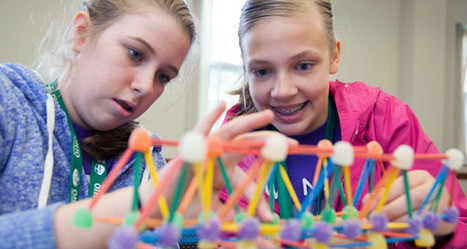The basics for building a relationship with another person are pretty standard regardless of age:
- talk to them,
- get to know them,
- and build from there.
The ways for getting to know someone will vary with who the person is. You probably wouldn’t ask the same questions on a date as you would a co-worker. The same goes for building a relationship your stepchild.
In many cases, a stepparent is looked upon as an interloper worming their way in rather than getting the respect and admiration a child would ordinarily give their biological parents.
These few tips will help provide inspiration for stepdads and stepmoms looking to build the relationship with their stepchildren.
- Attention Spans. Children have shorter attention spans than adults. Long rants are boring and children are skilled at tuning out things they don’t want to hear or consider boring. Keep conversations short and try not to get too detailed.
- Keep It Simple. A child doesn’t need a 20 minute lecture about why jumping on the bed is wrong. A simple statement about the fact the bed will break and they’ll have to sleep on the floor until another bed can be obtained will do.
- Rephrase It. If the child truly doesn’t seem to understand, don’t be afraid to rephrase the statement. To continue with the previous example, jumping on the bed will make it break is easier to say than trying to get a child to understand the repetitive bouncing motion weakens the springs and frame of the bed and will eventually cause it to collapse.
- Be Honest. Children seem to have an inner sense for when they are being lied to, except for when it comes to Santa Claus or the Tooth Fairy. In the interests of establishing trust between stepparent and stepchild, be as honest as possible. If the child asks a question, answer truthfully.
By being honest from the beginning, a stepchild will be more likely to trust a step parent with more sensitive issues later on. This is why it is also important to keep an open mind when dealing with stepchildren. If they feel they are being judged, they will be far less likely to confide in a step parent when other issues come up.
Like most of us children are sensitive to criticism, whether of themselves or their parents. If a stepchild has done something that rubs a stepparent the wrong way and it’s an issue that needs to be discussed, be careful with the phrasing used.
One of the ways to address this is to use “I” messages, for example, “I feel like you don’t respect me” is less harsh than saying, “You don’t respect me.”
The former statement expresses a sentiment rather than sounding like one is placing blame on the child for something. There are two people involved in the issue, stepparent and stepchild, thus when the issue is discussed it needs to include both people.
Even if their father happens to be a deadbeat that doesn’t pay child support, never say that where the child may possibly hear. Children have a strong attachment to their biological parents. As a stepparent, it’s important to be supportive instead of trying to undermine it.
When a situation does arise where some sort of confrontation or discussion needs to take place, work hard to make sure the stepchild understands it’s the act and not the child themselves that are in the wrong.
To use the example from above again, one would not say “You idiot! You’ll break the bed jumping on it like that!” A better way of addressing the issue would be “Jumping on the bed will cause it to break.” Careful wording when speaking to a stepchild can make all the difference in earning their trust and respect.
Learn five powerful ways to make open communication more of a reality with your stepchildren.






